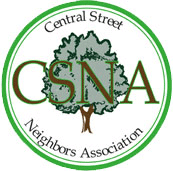Evanston Development Vision
With as many as four new “parks” in Evanston - Central Street, Main & Chicago Avenue, Kendall College,and a piece of the Research Park- the economy has done what the Evanston City Council failed to do, prevent an overbuilding of condo buildings.
My sense is that the current Council is motivated by a desire to increase City revenue through increased building permit fees and increased property values that eventually result in higher property taxes. The fact that Evanston is well served by public transportation is used as a “green” argument for increased population density, e.g. by reducing automobile commuting. The notion that most condo owners do not have children in the public school system further justified condo development as a relative property tax gain for the school districts. So when developers came to the Council pushing their plans, the most vocal opposition came not from the Council, but by (mostly) home owning residents. The Council responded by arranging meetings between developers and neighbors, and they created a process to write zoning plans, such as for downtown or Central Street. These plans seem to be compromises between developers and citizens.
The City Council is not very pro-active. Complaints about too much condo development are met with “but that’s what the developers want to build.” That was true. Part of the nature of the capitalist system is that once someone makes money with some activity, it attracts many copycats until nobody can make a profit. The latest downtown zoning plan was recently presented to the Council and much of the discussion centered on the amount of parking needed for condo buildings. No discussion took place about incentives for building office/commercial space. Workers can and do use the plentiful public transit options to commute to Evanston. They leave their cars at home. Condo owners, who may commute away from Evanston, need to park their cars at home, ie. Evanston. Both groups may be driving less, but workers require less parking than residents and are easier to motivate to not bring cars to downtown.
Having a relatively greater daytime population would also bring benefits. More demand for lunch, as opposed to dinner. More potential demand for local businesses, as workers schedule an appointment or shop close to work rather than home.
Making Evanston a better place to work seems to be ignored. No major corporate headquarters have replaced the old Washington National office building. Northwestern University spins off new technology businesses (such as in nanotechnology) that seem to settle and grow in Skokie, rather than Evanston. Instead, Evanston's light manufacturing zoned areas are getting developed as new retail (near James Park) or more residential (where Hines Lumber used to be.)
My vision includes a “wish list” based on what the people of Evanston would like to see. Would the people of Evanston support a large live performance theater? How about a bowling alley, like the one in the Glen? Soccer has grown to be a very popular sport in Evanston. Could an indoor soccer facility, such as the Windy City Fieldhouse, prosper in Evanston?
Finally, small business seems forgotten in the glare of big multistory condo buildings. When plans for the tower were debated before the Council, many therapists testified to the lack of replacement office space. Small business proprietorships are important contributors to economic development. Dental/medical offices, 1-2 person law offices, financial planning, design consultants and other professional offices provide employment within a walk or bicycle ride commute. Light industry, such as lawn care or auto repair shops, provide local jobs for those not professionally trained. I am committed to Evanston's economic diversity and will work to prevent Evanston from becoming just a bedroom community.
- johnzbesko's blog
- Log in to post comments
